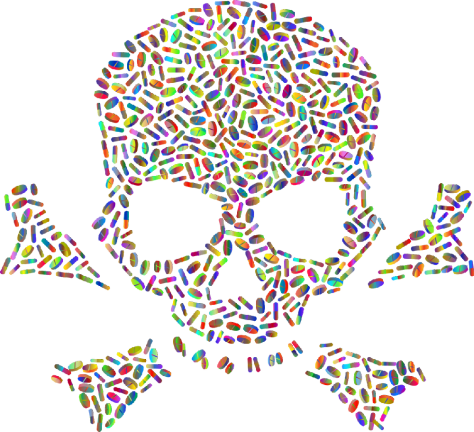Fentanyl test strips decriminalized to prevent overdose deaths
Harrisburg. New Pennsylvania legislation decriminalizes fentanyl test strips, which were considered drug paraphernalia, and supports use of the strips as harm reduction tools for drug users.

Pennsylvania Governor Tom Wolf recently signed into law House Bill 1393, which amends the Controlled Substance, Drug, Device and Cosmetic Act of 1972 to no longer define fentanyl test strips as drug paraphernalia.
According to the Pennsylvania Department of Health, 78% of the 5,343 overdose deaths statewide in 2021 involved fentanyl.
“Fentanyl is undetectable through sight, taste, and smell. Unless a drug is tested with a fentanyl test strip, it is nearly impossible for an individual to know if it has been laced with fentanyl,” said Pennsylvania Department of Drug and Alcohol Programs Secretary Jen Smith. “We continue to encourage all Pennsylvanians to equip themselves with the life-saving drug naloxone, and now with the legalization of fentanyl test strips, individuals have an additional tool to fight the overdose crisis. This legalization is a big win in the harm reduction space, allowing individuals to be more informed, given the large amount of fentanyl in our drug supply — this small strip of paper could save their life.”
The test strips are a low-cost method of helping to prevent drug overdoses and reducing harm. These small strips of paper can detect the presence of fentanyl in all different kinds of drugs (cocaine, methamphetamine, heroin, etc.) and drug forms (pills, powder, and injectables), providing people who use drugs and communities with important information about fentanyl in the illicit drug supply.
Fentanyl is a powerful synthetic opioid, nearly 100 times more potent than morphine. In the medical setting, fentanyl can be used to treat patients with chronic pain, such as pain associated with advanced cancer or severe pain following surgery. Illicit fentanyl, on the other hand, is primarily manufactured outside of the United States, illegally brought into the U.S. and distributed and sold on the illegal drug market. It is sold as powders, nasal sprays, and pills that are made to look like prescription opioids. Fentanyl is being mixed with other illicit drugs, primarily heroin, to increase its potency. Mixing fentanyl with other drugs increases the likelihood of its use leading to a fatal overdose.
“The legalization of fentanyl test strips will undoubtedly help save the lives of Pennsylvanians by reducing drug overdoses,” said Acting Health Secretary and Pennsylvania Physician General Dr. Denise Johnson. “Many people take the deadly drug without knowing it. Now, they can use test strips to identify the presence of fentanyl, so they are not accidently exposed to the drug.”
Harm reduction is a proven public health approach that minimizes the negative consequences of drug use, saves lives, improves health outcomes, and strengthens families and communities. This approach recognizes that there will always be individuals using and misusing legal and illegal drugs, and addresses the conditions of their use. Other harm reduction tools include syringe services programs, which the Wolf Administration also strongly believes should be legalized by the General Assembly.
There are numerous ways that Pennsylvanians can access life-saving naloxone. Dr. Johnson signed standing orders allowing members of the general public and first responders to obtain naloxone from their local pharmacy and through a partnership with Point Pittsburgh and NEXT Distro. Pennsylvania supports a statewide mail-based naloxone program for individuals to request medication for personal use.
These small strips of paper can detect the presence of fentanyl in all different kinds of drugs (cocaine, methamphetamine, heroin, etc.) and drug forms (pills, powder, and injectables), providing people who use drugs and communities with important information about fentanyl in the illicit drug supply.